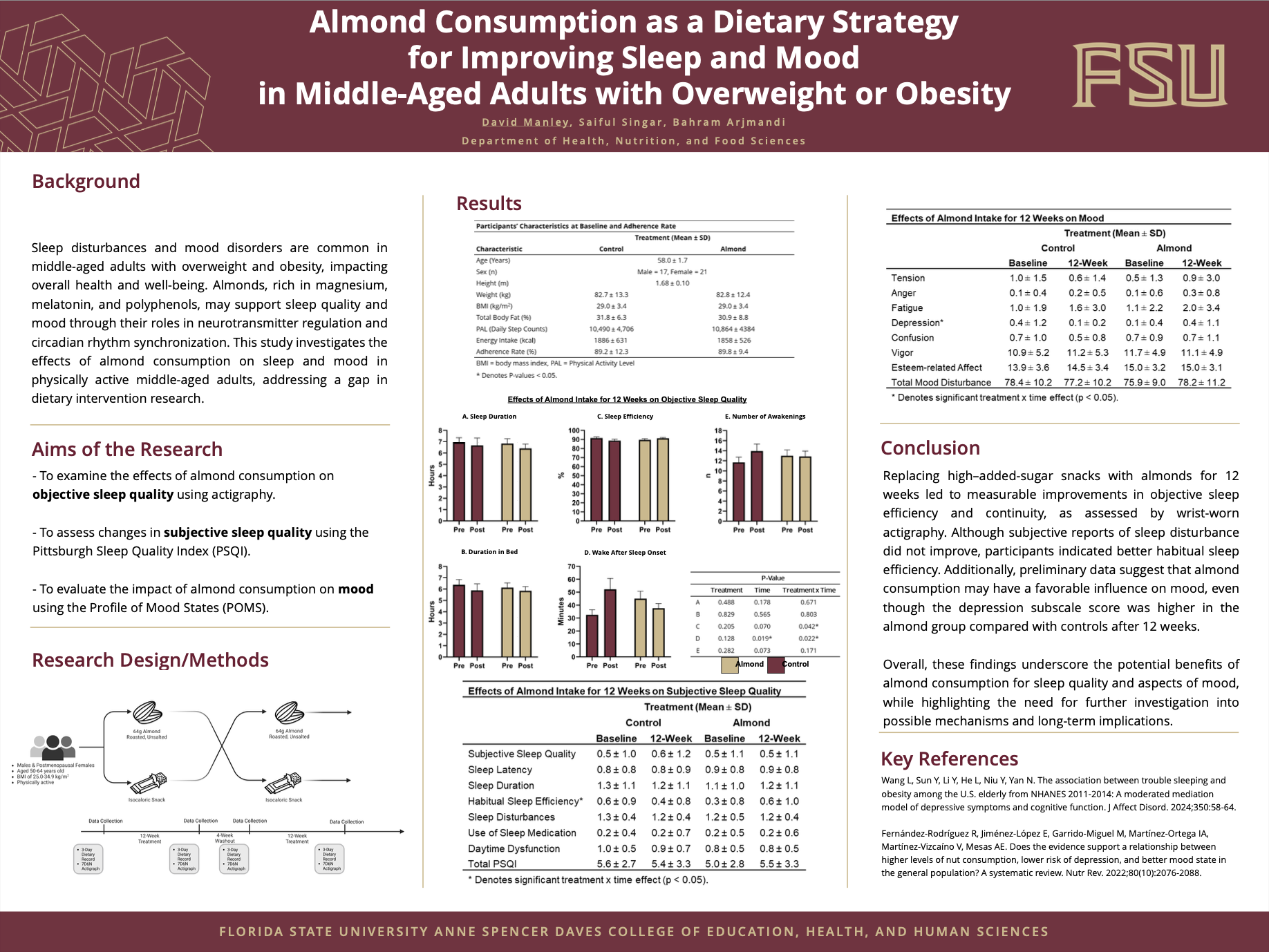Research Symposium
25th annual Undergraduate Research Symposium, April 1, 2025
David Manley Poster Session 2: 10:45 am - 11:45 am/ Poster #101
BIO
My career goal is to become a physician with my current interests being in orthopedic surgery and neurology. Some research topics I am interested in are how diet and exercise can improve different health markers. Current Research involvements are in the Almond and Watermelon studies with The Gut Biome Lab under the Annes College of Education, Health, and Human Sciences. In the future, I would like to investigate the psychology behind fitness and how to progress the U.S. in becoming more active and consuming healthier diets.
Almond Consumption as a Dietary Strategy for Improving Sleep and Mood in Middle-Aged Adults with Overweight or Obesity
Authors: David Manley, Bahram ArjmandiStudent Major: Exercise Physiology
Mentor: Bahram Arjmandi
Mentor's Department: Health, Nutrition, and Food Sciences Mentor's College: Anne's College of Education, Health, and Human Sciences Co-Presenters:
Abstract
Objectives: This study examined the effects of almond intake, rich in magnesium and tryptophan, on objective and subjective sleep measures and mood in middle-aged adults with overweight or obesity.
Methods: A crossover RCT included 17 males and 21 postmenopausal females aged 50–64 with a BMI of 25.0–34.9 kg/m². Participants consumed 64g of almonds or an isocaloric control snack daily for 12 weeks, separated by a 4-week washout. At baseline and post-intervention, sleep measures and mood were assessed via actigraphy, the Pittsburgh Sleep Quality Index, and the Profile of Mood States. Linear mixed model analyses were conducted to determine the main (treatment and time) and interaction effects. A p-value of 0.05 was considered statistically significant.
Results: There was a significant Treatment×Time interaction for sleep efficiency (b=7.0%, p=0.043), with the almond group exhibiting greater improvements from baseline to 12 weeks compared to controls. In addition, there was a significant main effect of Time on wake after sleep onset (WASO) (b=25min, p = 0.047), indicating an overall increase in WASO over the study period. This main effect was further qualified by a significant Treatment×Time interaction (b=–36min, p = 0.043), such that the almond group demonstrated a more favorable trajectory in WASO changes relative to the control group. Almond intake did not significantly affect subjective sleep measures and mood (all p>0.05).
Conclusions: Almond intake improved sleep efficiency and reduced wake after sleep onset in middle-aged adults with overweight or obesity but had no significant effects on perceived sleep quality or mood.
Keywords: Almond, Sleep, Obesity

